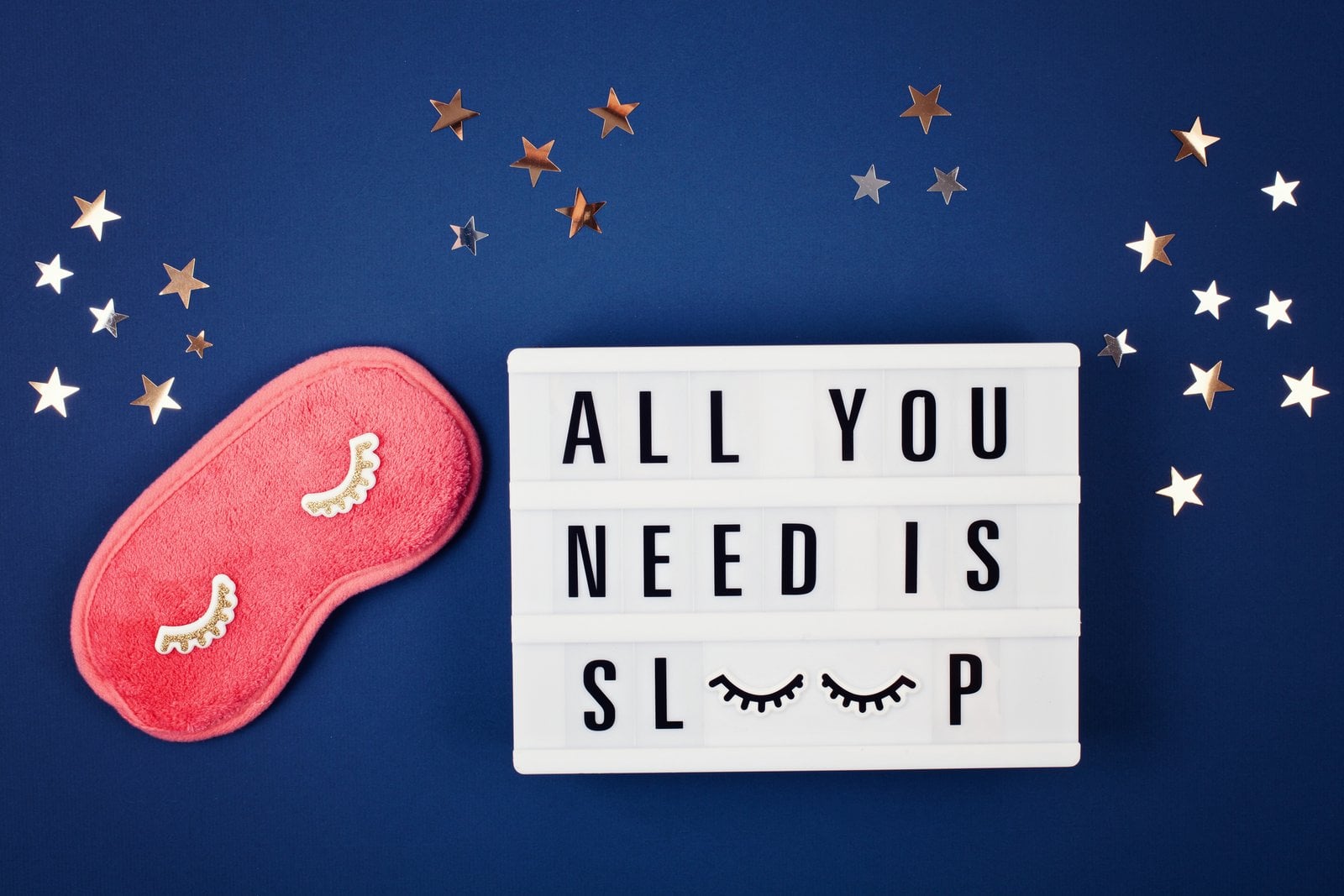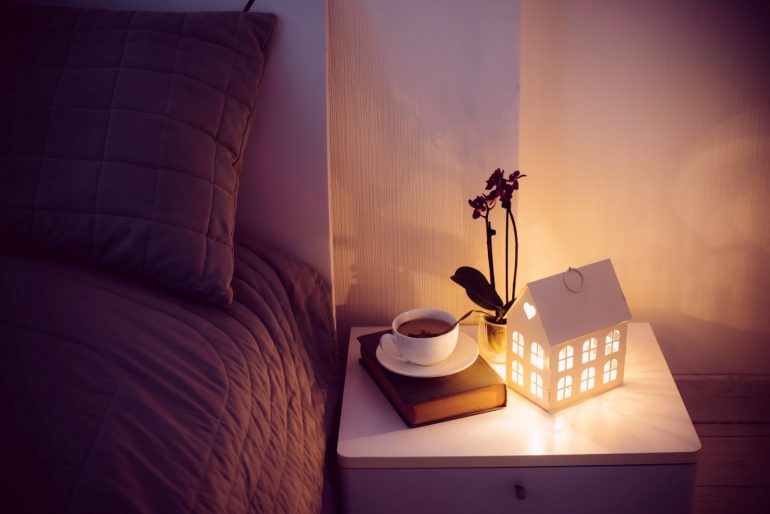Want to be happier and more productive? It all starts with getting plenty of shut-eye.
A common myth is that people can learn to get by on little sleep (such as less than six hours a night) with no negative effects. Research suggests, however, that adults need at least seven to eight hours of sleep each night to be well-rested.
Maintaining a consistent sleep schedule and feeling well-rested are related — and the 2019 National Sleep Foundation’s Sleep in America poll found that those with the most regular and consistent weekday sleep schedules were about 1.5 times more likely to report feeling well-rested than their most variable sleep schedule-having counterparts.
Fifty-two to 56 percent of Americans reporting the most regular sleep schedules woke up feeling well-rested on weekdays. In comparison, only 34 to 38% of those with the most varied sleep times reported the same.
Other research backs this up. For example, national surveys show that 30 percent of American adults sleep fewer than seven hours a night, notes NIH MedlinePlus. As many as 30 percent of adults also report daytime sleepiness so severe that it interferes with work, driving, and social functioning at least a few days each month.
22 tips to get more sleep
Here are some ways you can help yourself get all the sleep you need.
1) Stick to a sleep schedule. Go to bed and wake up at the same time each day, and try to keep the same sleep schedule on weeknights and weekends — or at least limit the difference to no more than about an hour. Sleeping later on weekends won’t fully make up for a lack of sleep during the week, and will make it harder to wake up early on Monday morning.
2) Make yourself comfortable. Having a comfortable mattress and pillow can help promote a good night’s sleep. If you don’t love your mattress, consider a memory foam or eggcrate-style mattress pad or mattress topper, and think about new sheets or pillowcases.
3) Make the temperature just right. Find a comfortable temperature setting for sleeping, and keep the room well-ventilated, suggest the professionals at the University of Maryland Medical Center. If your bedroom is too cold or too hot, it can keep you awake.
A cool (not cold) bedroom is often the most conducive to sleep. A fan may help if your room is often on the warm side.
4) Condition your mind to know that bed means sleep. Be sure your bed is used only for sleeping and not for reading, watching TV, or listening to music.
5) Relax before bed. Don’t overschedule your day so that no time is left for unwinding. A relaxing activity, such as reading or listening to music, should be part of your bedtime ritual.
6) Take a hot bath before you hit the hay. The drop in body temperature after getting out of the bath may help you feel sleepy, and the bath can help you relax and slow down so you’re more ready to sleep.
7) Don’t take naps after 3 pm. Naps can help make up for lost sleep, but late afternoon naps can make it harder to fall asleep at night.
8) Get the right sunlight exposure. Daylight is key to regulating daily sleep patterns. Try to get outside in natural sunlight for at least 30 minutes each day.
If possible, wake up with the sun or use very bright lights in the morning. Sleep experts recommend that, if you have problems falling asleep, you should get an hour of exposure to morning sunlight and turn down the lights before bedtime.
ALSO SEE: What are the safest ways to use candles? 15 simple tips
9) Minimize the blue light. If you often are on the computer until just before bedtime, consider turning on the night mode, or installing a free utility like f.lux, which gives you find control to adjust the color of your computer’s display based on the time of day or night.
As the f.lux creators say, “We know that night-time exposure to blue light keeps people up late. We believe that f.lux adjusts colors in a way that greatly reduces the stimulating effects of blue light at night.”
Likewise, don’t watch TV, before bed, as the light emitted might just perk you up more.
10) If light makes it hard for you to sleep, get a soft eye mask to help minimize the disruption.
11) Are things too noisy? Keep some comfortable earplugs on hand.
12) Go tech-free. Remove all TVs, phones, tablets, computers, and other “gadgets” from the bedroom, because they can be a distraction and deprive you of needed sleep.
13) Read — but with only a little light. According to a 2020 study from Penguin Random House, on a typical weekday, people who read before bed got an average of 7 hours and 5 minutes of sleep, 25 minutes more than people who do not read before bed.
But when you read before bed, be sure to keep the light dim.

14) Don’t watch the minutes pass. People who have insomnia often watch the clock. If this sounds like you, turn the clock’s face out of view so you don’t worry about the time while trying to fall asleep.
15) Don’t lie in bed awake. If you find yourself still awake after staying in bed for more than about 20 minutes, or if you are starting to feel anxious or worried, get up and do some relaxing activity until you feel sleepy. The anxiety of not being able to sleep can make it harder to fall asleep.
16) Exercise is great, but not too late in the day. Try to exercise at least 30 minutes on most days — but not later than 2 to 3 hours before your bedtime. If you like, you can do some gentle stretching exercises or yoga to relax your muscles and your mind at bedtime.
17) If possible, avoid medicines that delay or disrupt your sleep. Some commonly prescribed heart, blood pressure, or asthma medications, as well as some over-the-counter and herbal remedies for coughs, colds, or allergies, can disrupt sleep patterns.
If you have trouble sleeping, talk to your healthcare provider or pharmacist to see whether any drugs you’re taking might be contributing to your insomnia and ask whether they can be taken at other times during the day or early in the evening.
18) Avoid caffeine and nicotine. Coffee, colas, certain teas, and chocolate contain the stimulant caffeine, and its effects can take as long as 8 hours to wear off fully. Therefore, a cup of coffee in the late afternoon can make it hard for you to fall asleep at night.
Nicotine is also a stimulant, often causing smokers to sleep only very lightly. In addition, smokers often wake up too early in the morning because of nicotine withdrawal.
19) Avoid alcoholic drinks before bed. Having a “nightcap” or alcoholic beverage before sleep may help you relax, but heavy use robs you of deep sleep and REM sleep, keeping you in the lighter stages of sleep. Heavy alcohol ingestion also may contribute to impairment in breathing at night. You also tend to wake up in the middle of the night when the effects of the alcohol have worn off.
20) Don’t have large meals and beverages late at night. A light snack is okay, but a large meal can cause indigestion that interferes with sleep. Drinking too many fluids at night can cause frequent awakenings to urinate.
21) See a health professional if you continue to have trouble sleeping. If you consistently find it difficult to fall or stay asleep and/or feel tired or not well rested during the day despite spending enough time in bed at night, you may have a sleep disorder. Your family healthcare provider or a sleep specialist should be able to help you, and it is important to rule out other health or emotional problems that may be disturbing your sleep.
22) Above all, don’t worry about sleep, say the experts at Harvard Medical School. They add, “Watching the clock never helps. Except when keeping a sleep diary, don’t keep track of the amount of time you spend trying to sleep. Instead, just rest quietly and peacefully.
“Try not to lie in bed reviewing your problems and plans. If you really are overloaded, get out of bed and make a list, then return to bed and think of something relaxing and pleasant.”








